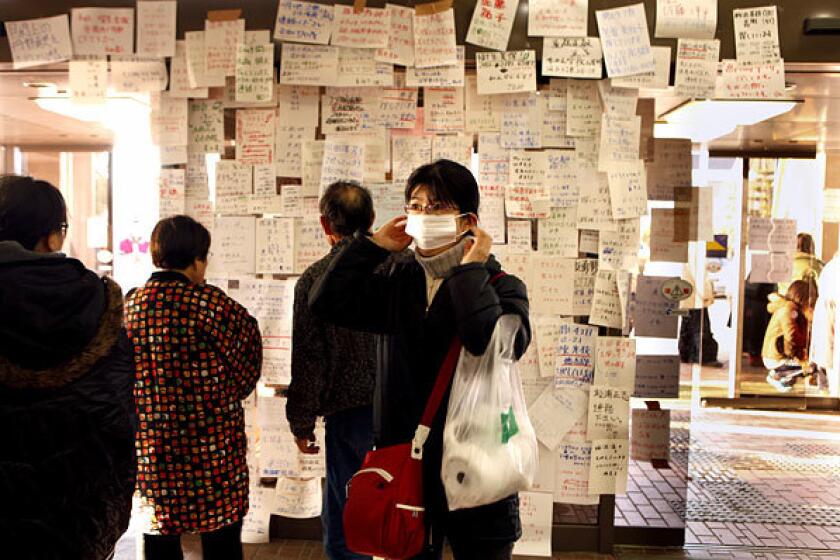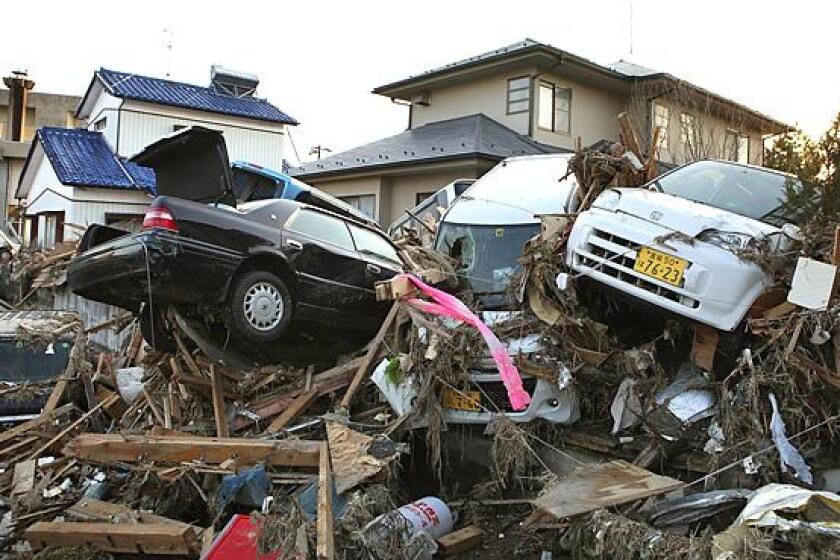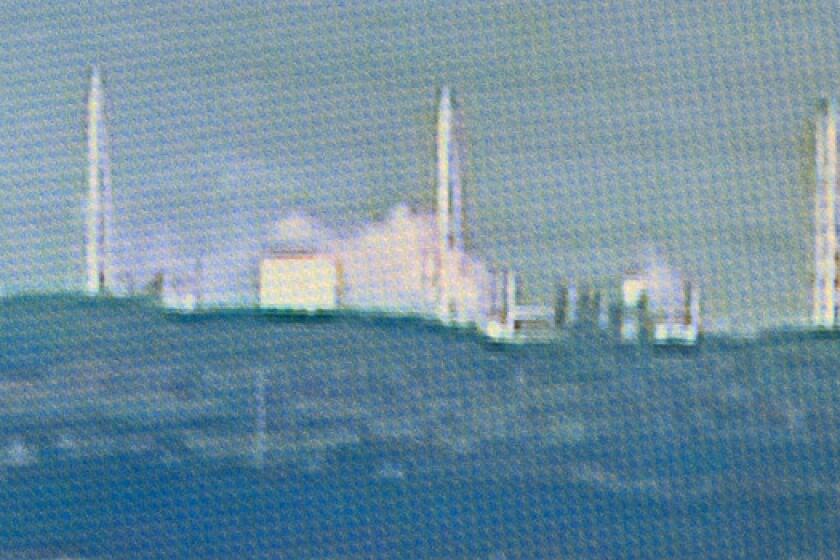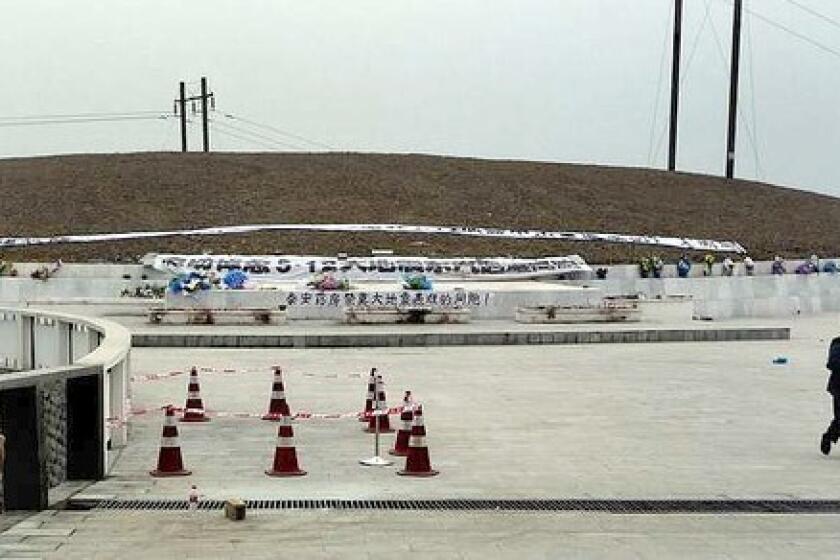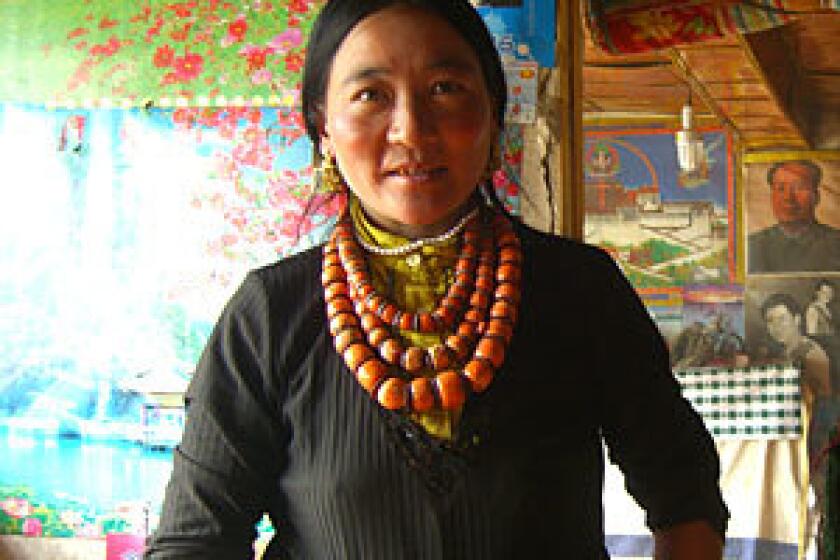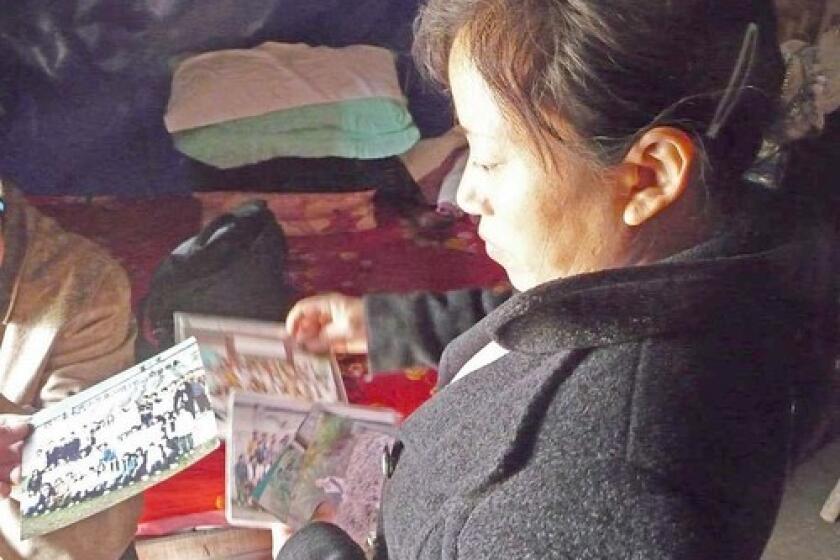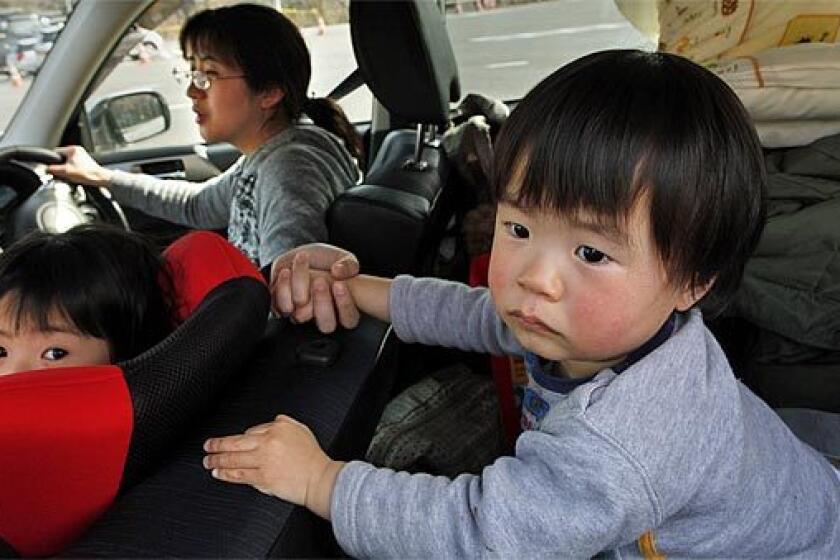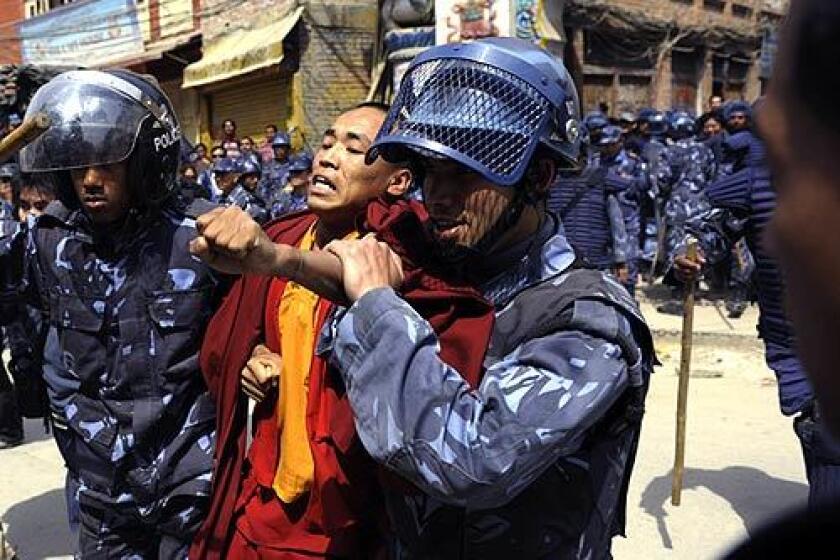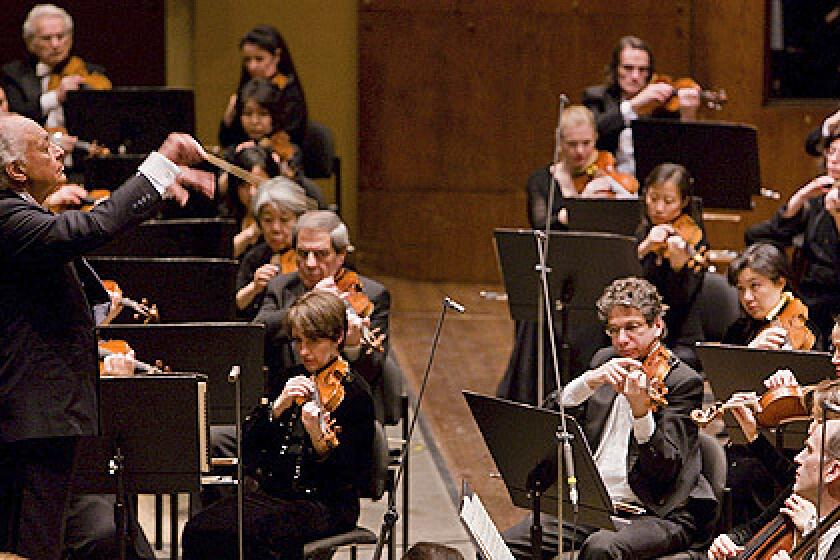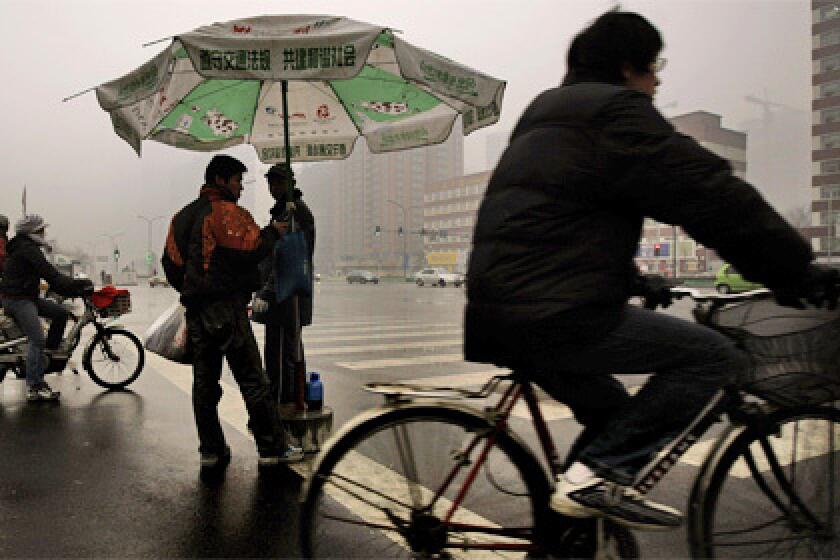Beijing
Barbara Demick
Barbara Demick is Beijing bureau chief for the Los Angeles Times, formerly bureau chief in Seoul. Her reporting on North Korea has been recognized with awards from the Asia Society, the Overseas Press Club and the American Academy of Diplomacy. She joined the Times in 2001 after serving as a foreign correspondent for the Philadelphia Inquirer in the Middle East and Eastern Europe. At the Inquirer, she also won the Polk Award for international reporting, the Robert F. Kennedy award for international reporting and was a Pulitzer finalist. Demick is the author of Logavina Street: Life and Death in a Sarajevo Neighborhood and of Nothing to Envy: Ordinary Lives in North Korea.
- 1
Nearly 40 years after he vanished across the demilitarized zone into North Korea, Charles Robert Jenkins is to appear in a U.S. military court Wednesday to face charges of desertion and aiding the enemy.
- 2
China fines one domestic firm and five foreign companies, including two in the U.S., that it said artificially inflated prices.
- 3
Even houses and streets are gone after the quake and tsunami. Desperate family members go from one evacuation center to another.
- 4
The quake triggers a tsunami that threatens much of the Pacific. Up to 300 bodies are found in the city of Sendai in northeastern Japan, an area believed to have been hit hardest by the massive waves.
- 5
As a second blast shakes nuclear plant, officials say the death toll from the earthquake and tsunami could reach tens of thousands. Power is rationed and rescue teams pour in.
- 6
An awful reality is setting in for those trapped near the stricken nuclear plant: People are afraid to help them.
- 7
As waters begin to recede, the extent of the damage from the quake and tsunami is coming into focus, revealing a world where up is down, with boats resting on roads and cars seemingly parked in water.
- 8
One police official says the toll could hit 10,000 in his prefecture alone. The reeling nation also contends with a possible meltdown in at least one reactor at the Fukushima No. 1 nuclear plant. Dozens are believed to have been exposed to radiation.
- 9
The most remarkable thing about the ‘Beauty of Loulan’ and the rest? They appear to be of ancient Caucasians. They were found in an area of China that was a crossroads between Asia and Europe.
- 10
Fires, cratered highways and power outages leave people stunned nationwide. The death toll tops 1,000, and worries mount as two nuclear power plants cope with damage.
- 11
Everybody wants to make a good impression for important guests, but it’s almost like an episode of “Extreme Makeover” here these days.
- 12
Japanese officials face another setback in their struggle to contain the Fukushima nuclear reactor crisis. Meanwhile, Japanese cope with food shortages and bitter cold.
- 13
A mass grave in Hanwang, China, had to be created quickly in the hot, humid days after the May 2008 earthquake. Anywhere from 2,000 to 8,000 bodies are believed to lie within.
- 14
As officials struggle with the specter of meltdowns at two plants in Fukushima, many Japanese don’t trust authorities are telling them everything they know.
- 15
Most people have endured their privations with stoicism, but anger is rising over lack of basic services. For many, the slow response is reminiscent of that to the quake in Kobe in 1995.
- 16
Kim was the country’s most famous dissident when he became president in 1998. In 2000, he won the Nobel Peace Prize for his sunshine policy of engaging North Korea.
- 17
With demand sky high for caterpillar fungus, a prized ingredient in traditional medicine said to boost energy and immunity, the Tibetan nomads who gather it are enjoying a windfall.
- 18
A leak in a spent fuel pool at the Fukushima nuclear plant would be an unprecedented problem with no clear remedy, experts say.
- 19
Eleven months after the devastating earthquake in Sichuan province, the government has issued no official death toll and families yearn for DNA confirmation of their losses.
- 20
Fearing terrorist threats, Beijing has deployed tens of thousands of security personnel, banned cars into the capital and is installing surface-to-air missiles near stadiums.
- 21
Visitors are delighted to see the eight young animals that were evacuated from the Wolong Nature Reserve, which was damaged in the May 12 temblor.
- 22
The lavish new National Center for the Performing Arts is considered odd-looking and tickets are too pricey for many in China.
- 23
Japanese citizens’ distrust of their government is high, and even without evacuation orders, some well removed from the Fukushima nuclear plant have decided to flee.
- 24
Vehicle curbs and factory closures haven’t worked, and emergency plans may have to be tried. China says it’s made improvements, but air quality experts question standards and measuring techniques.
- 25
Fearing the pollution, some will train offshore and may wear masks; others talk of skipping all or part of the Summer Games.
- 26
On 50th anniversary of the province’s failed uprising, China takes unprecedented security measures.
- 27
The musicians hope their concert this week will present a positive image of Americans in a nation where the U.S. is vilified.
- 28
The transformation goes beyond the architecture, which helped inflate the Games’ price tag to a record-smashing $43 billion. The government is also trying to create a new, improved population.
- 29
Hunger is driving North Koreans to capitalistic enterprises and weakening the communist regime’s iron grip.
- 30
‘Weather modification’ team will manipulate the clouds in summer to try to keep the open-air stadium dry.
- 31
If regime keeps pursuing nuclear arms, financial scrutiny will toughen, U.S. negotiator warns.
